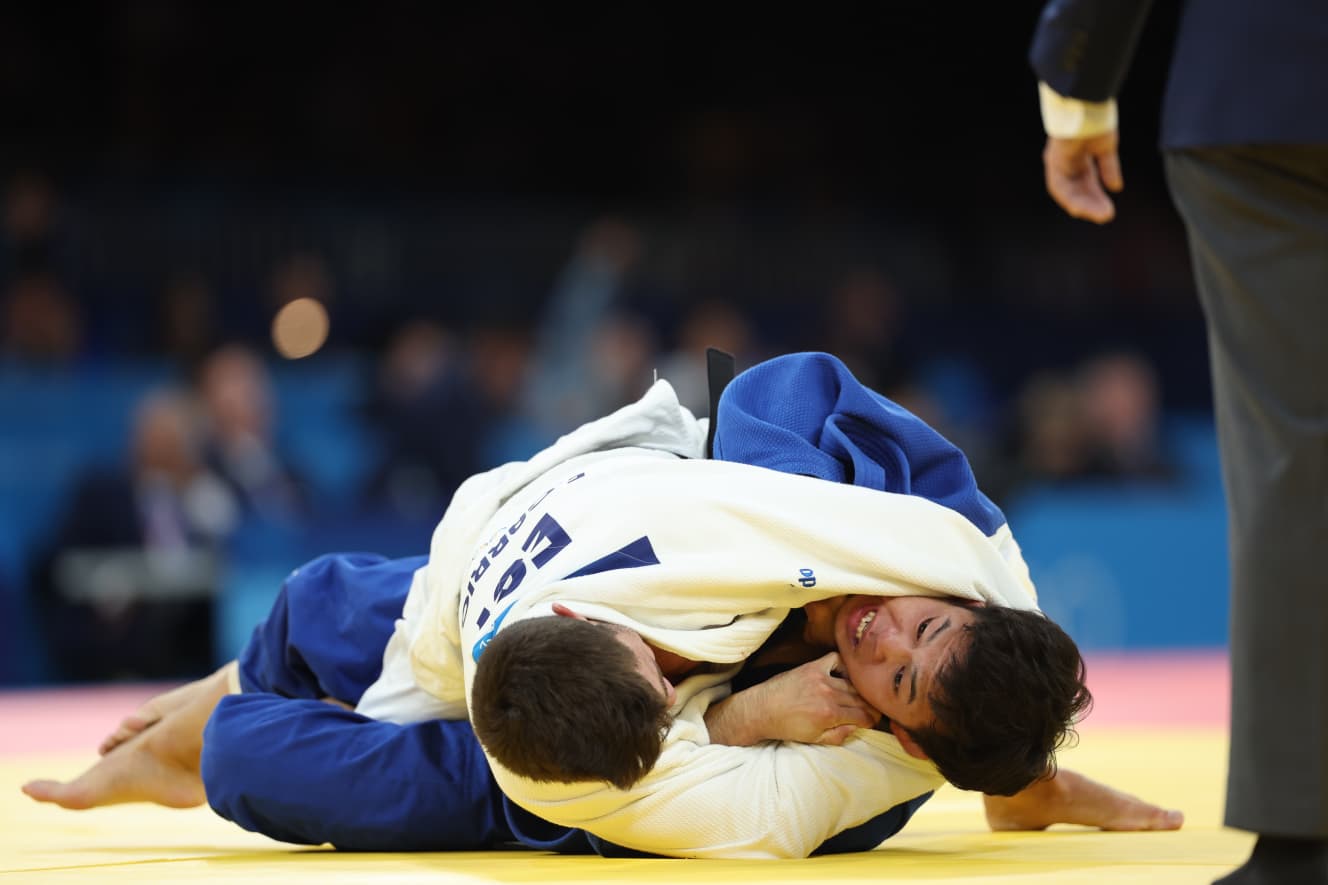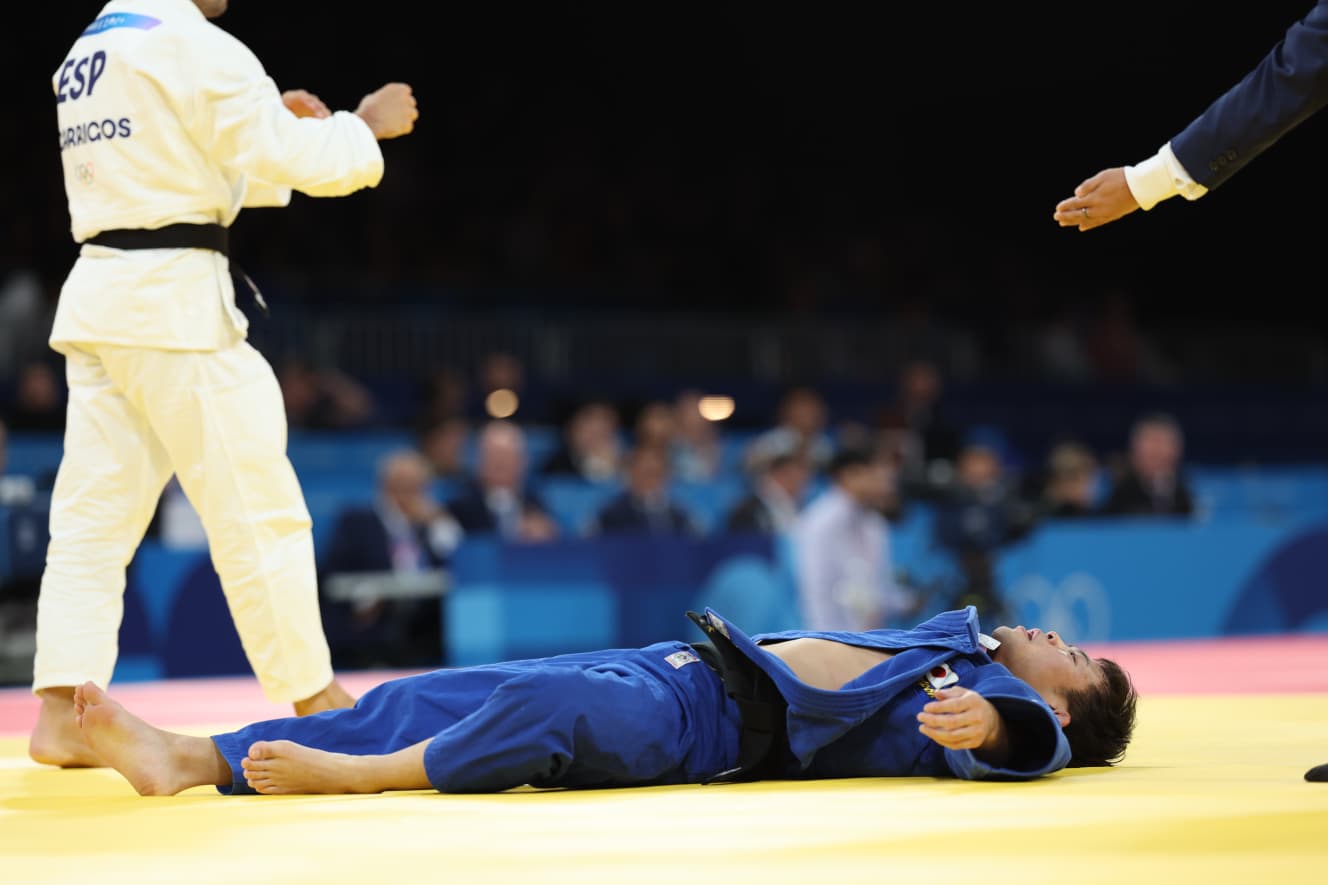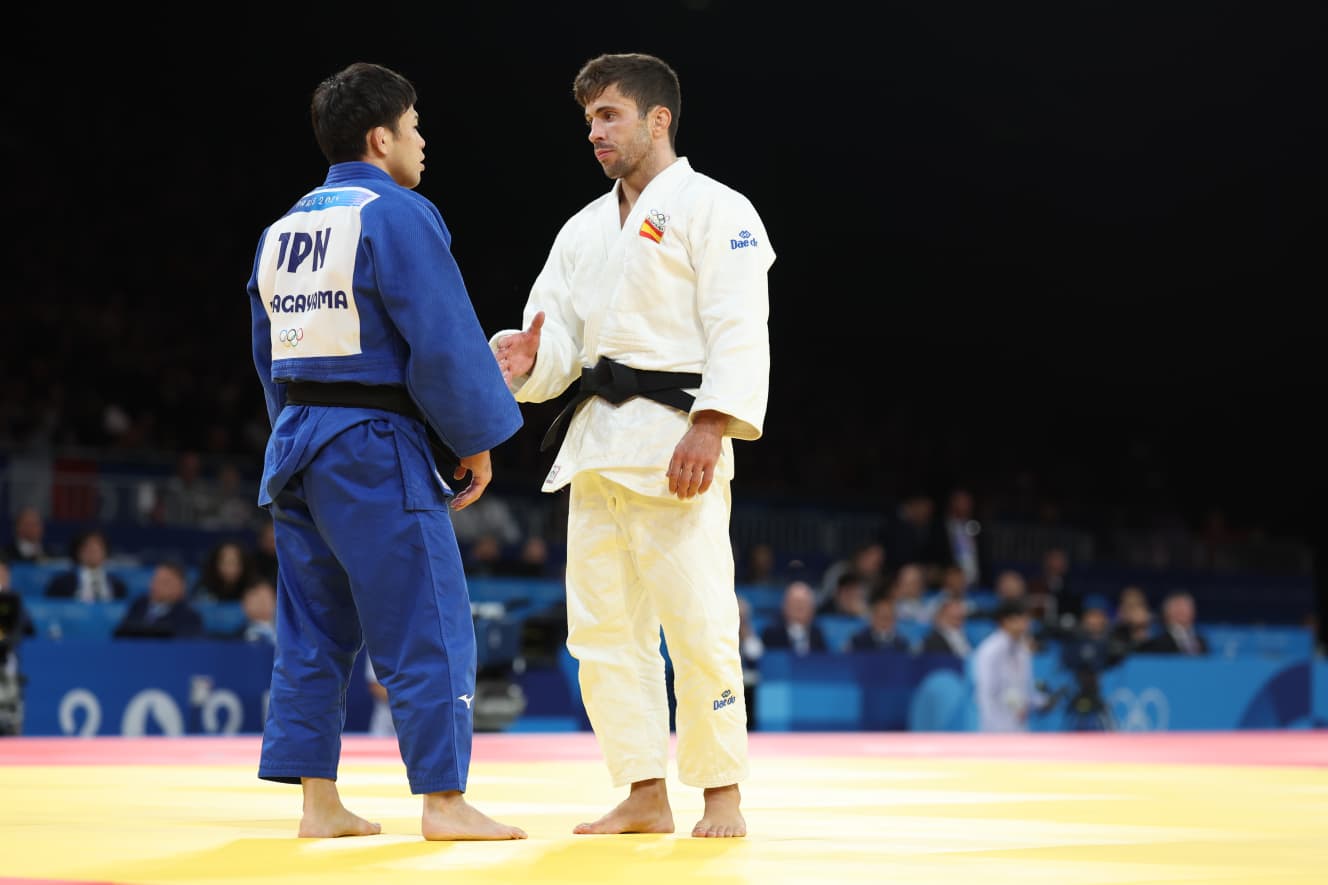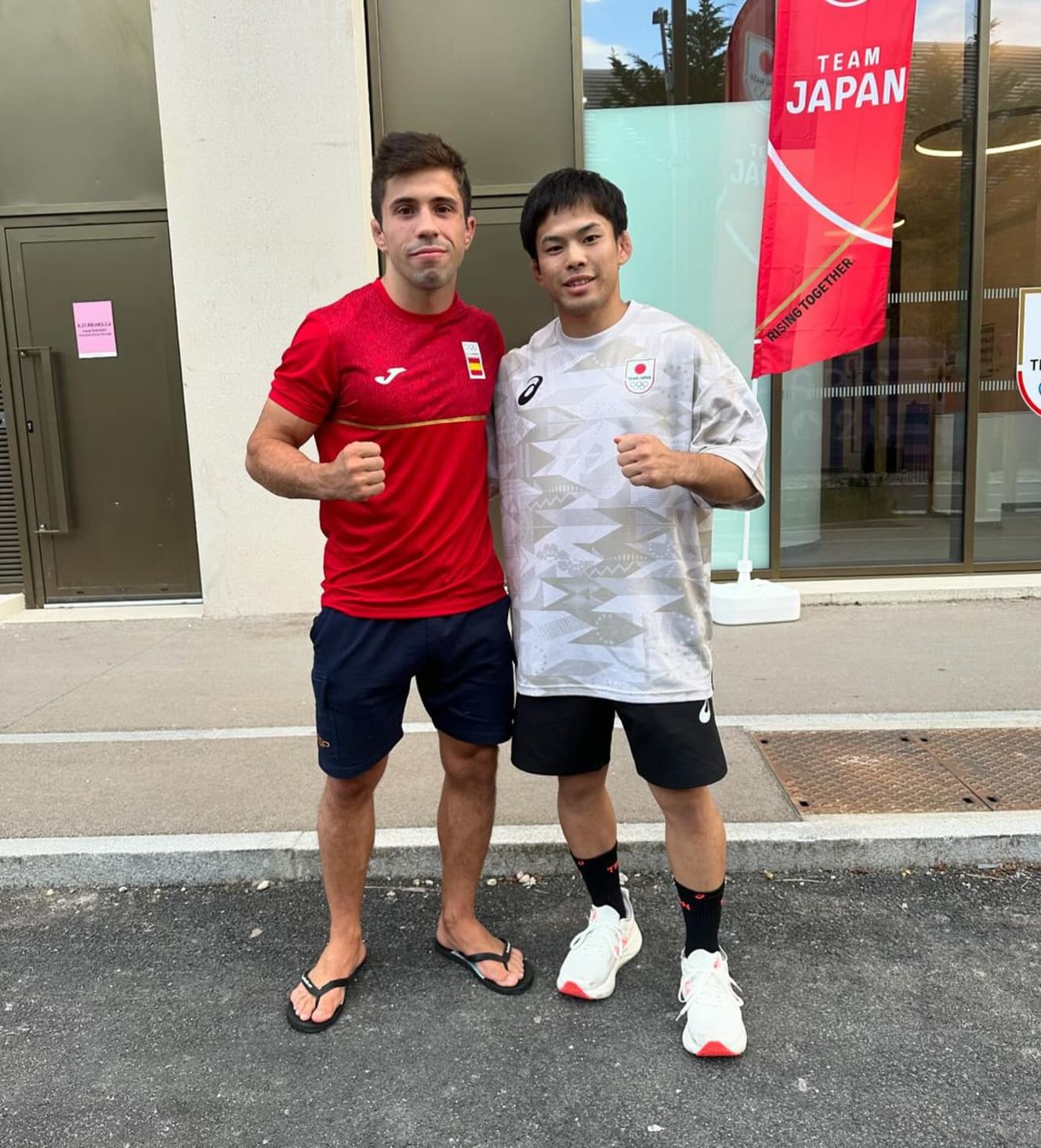Low Referee Standards Cause Disarray in Paris Olympics Judo

Judo, a sport that originated in Japan and has been regarded as Japan’s specialty, was the only Japanese-origin sport featured in the Paris Olympics. However, the results were a disappointment, with a total of three gold medals, two silver, and three bronze across men’s, women’s, and mixed team events. In the final day’s team competition, Japan, the host country with a judo population four times larger than Japan’s, lost to France and settled for a silver medal. This result marked a significant drop from the nine gold, two silver, and one bronze medals Japan earned at the previous Tokyo Olympics in 2021.
One factor contributing to this outcome was the overall increase in the level of judo competition globally. However, the results were particularly affected by numerous “judging errors.”
Among these, the most controversial was the quarterfinal match on the first day of the judo competition between Ryuki Nagayama (28) of Japan and Francisco Gállegos (29) of Spain in the men’s 60 kg category.
As the ground fighting stalemated, the main referee, Elizabeth Gonzalez (37) from Mexico, called for a “halt.” However, Gállegos continued applying a choke hold for several seconds, resulting in Nagayama losing consciousness and being defeated by ippon.
“Gállegos claimed he did not hear the ‘halt’ command, but the main referee should have intervened as soon as Gállegos continued the choke hold. It is basic knowledge for a judo referee to act in such situations, yet the standard of refereeing was shockingly low.
In international judo matches, there are two assistant referees and three video review judges (supervisors) in addition to the main referee. The main referee holds the most significant authority. At the Olympics, 16 referees, recommended by judo federations from each continent, are eligible to serve as main referees. However, there is a significant disparity in the levels of refereeing, leading to disorder on the mat.
Despite this, Yasuko Amano (53), the only Japanese referee serving at the Tokyo Olympics, consistently provided stable and accurate judgments. Although increasing the number of Japanese referees may be challenging, reducing ‘judging errors’ in future international tournaments will be a significant task for the International Judo Federation (IJF).” (Reported by an Olympic sports journalist)
In judo, international competitions such as the Olympics follow the rules set by the International Judo Federation (IJF), while domestic tournaments in Japan are governed by the Kodokan rules, creating a double standard. As the IJF continually revises international rules, the Kodokan rules have increasingly adapted to align with these changes.
“Initially, only white judo uniforms were allowed, but the introduction of blue uniforms to make it easier to distinguish between competitors was one of many rule changes implemented by the IJF. Other changes include the prohibition of gripping below the belt, the introduction of the penalty point system where three ‘shidos’ result in disqualification, the elimination of ‘yuko’ and ‘koka’ points below ‘waza-ari,’ and the reduction of the time required for pinning to achieve ‘ippon’ or ‘waza-ari.’
While rule changes have had both advantages and disadvantages for Japanese competitors, there are still significant differences between international and domestic rules. For example, international rules use the ‘Golden Score’ to determine a winner after the main four-minute match, whereas domestic competitions sometimes allow draws in team events or use referee decisions in cases of tied points in the weight-agnostic All Japan Championships.
If Japan had more influence within the IJF, it might have been possible to incorporate elements of Kodokan rules, such as allowing draws in team events. However, currently, Japan lacks political and diplomatic influence in the global judo community, and despite being the birthplace of judo, it is unable to provide ‘educational guidance’ on the global stage.” (According to a person involved with the All Japan Judo Federation)
The situation began when Yasuhiro Yamashita (67), the gold medalist in the men’s open weight category at the 1984 Los Angeles Olympics, was not elected to the IJF board in September 2007. Yamashita, known as a judo legend with an unprecedented 203 consecutive wins and a recipient of the People’s Honor Award, was considered the strongest man in Japanese judo. Since Shigeyoshi Matsumae, the founder of Tokai University, served as IJF president from 1979 to 1987, no Japanese IJF president has emerged. Given Yamashita’s achievements and contributions to judo, he seemed exceptionally qualified for the role.
“Yamashita, feeling responsible for the controversial silver medal decision involving Shinichi Shinohara (51) at the 2000 Sydney Olympics, decided to take action. He ran for and won the position of Director of Education and Coaching at the IJF in 2003, working on reforms including changes to the rules of international judo.
However, in 2007, when he ran again for the position of Director of Education and Coaching, he was defeated by a candidate from Algeria. It is said that Marius Vizer (65), who won the IJF presidency in the same year, supported Yamashita’s opponent.
Despite this, Vizer, seeking to engage Japan for the Tokyo Olympics, unexpectedly reinstated Yamashita as a director in 2015 through his presidential authority. Yamashita continues to serve as a director, but since he did not win the position through an election, he does not have voting rights. Essentially, he holds a ceremonial role with little influence. Furthermore, Yamashita’s limited proficiency in English has made it difficult for him to effectively compete with politically influential figures from abroad.” (same source)
Vizer, born in Romania and having made his fortune in the casino business in Austria, leveraged his considerable financial resources to dominate the IJF, establishing an almost dictatorial regime. Under Vizer’s influence, mixed team events were added to judo’s Olympic program starting with the Tokyo Olympics, following their introduction at the World Championships. From the Tokyo Olympics, computer-based draws were used for selecting weight classes for representative matches, and the roulette system was introduced for the Paris Olympics.
In the mixed team final at the Paris Olympics between Japan and France, a “digital roulette” decided the weight class for a pivotal match, determining it to be the men’s over 90 kg category. The French competitor in this category was Teddy Riner (35), a national hero who had won gold in the over 100 kg category at the same tournament. As a result, Japan’s Tatsuru Saito (22) was defeated by ippon, and France secured the gold medal in mixed team events for the second consecutive Olympics. This led to suspicions of unfairness in the draw process within Japan, with criticism and accusations of “cheating roulette” spreading on social media.
“Yamashita’s term as an IJF director runs until June next year, but he is currently undergoing treatment for a cervical spine injury. It will be challenging for him to continue in this role alongside his position as president of the Japanese Olympic Committee (JOC). Moving forward, Japan should consider sending individuals with proven judo achievements and international perspectives to the IJF, such as Kosuke Inoue (46), who won gold in the men’s 100 kg category at the Sydney Olympics and served as the head coach for the men’s team at the Tokyo Olympics, and Shohei Ono (32), who secured back-to-back gold medals in the men’s 73 kg category at the 2016 Rio and Tokyo Olympics and is currently coaching in the UK. Without such personnel, it will be difficult to restore order to the judo world.” (according to the aforementioned reporter)
It seems that restoring Japanese judo’s prominence will not be achieved by improving competitive performance alone.




PHOTO: Tetsuya Higashikawa/JMPA